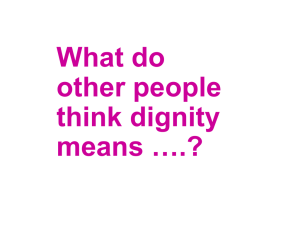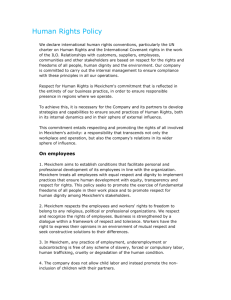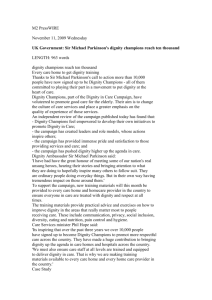From the Utopianism of Human Rights to the Primacy of the Political
advertisement
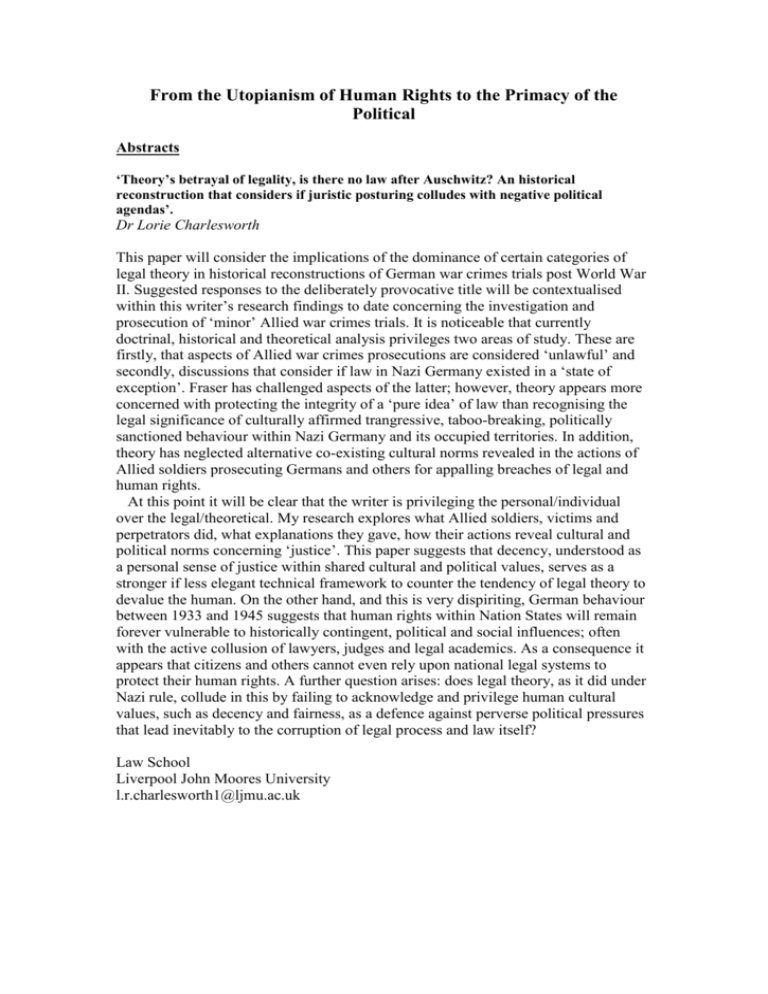
From the Utopianism of Human Rights to the Primacy of the Political Abstracts ‘Theory’s betrayal of legality, is there no law after Auschwitz? An historical reconstruction that considers if juristic posturing colludes with negative political agendas’. Dr Lorie Charlesworth This paper will consider the implications of the dominance of certain categories of legal theory in historical reconstructions of German war crimes trials post World War II. Suggested responses to the deliberately provocative title will be contextualised within this writer’s research findings to date concerning the investigation and prosecution of ‘minor’ Allied war crimes trials. It is noticeable that currently doctrinal, historical and theoretical analysis privileges two areas of study. These are firstly, that aspects of Allied war crimes prosecutions are considered ‘unlawful’ and secondly, discussions that consider if law in Nazi Germany existed in a ‘state of exception’. Fraser has challenged aspects of the latter; however, theory appears more concerned with protecting the integrity of a ‘pure idea’ of law than recognising the legal significance of culturally affirmed trangressive, taboo-breaking, politically sanctioned behaviour within Nazi Germany and its occupied territories. In addition, theory has neglected alternative co-existing cultural norms revealed in the actions of Allied soldiers prosecuting Germans and others for appalling breaches of legal and human rights. At this point it will be clear that the writer is privileging the personal/individual over the legal/theoretical. My research explores what Allied soldiers, victims and perpetrators did, what explanations they gave, how their actions reveal cultural and political norms concerning ‘justice’. This paper suggests that decency, understood as a personal sense of justice within shared cultural and political values, serves as a stronger if less elegant technical framework to counter the tendency of legal theory to devalue the human. On the other hand, and this is very dispiriting, German behaviour between 1933 and 1945 suggests that human rights within Nation States will remain forever vulnerable to historically contingent, political and social influences; often with the active collusion of lawyers, judges and legal academics. As a consequence it appears that citizens and others cannot even rely upon national legal systems to protect their human rights. A further question arises: does legal theory, as it did under Nazi rule, collude in this by failing to acknowledge and privilege human cultural values, such as decency and fairness, as a defence against perverse political pressures that lead inevitably to the corruption of legal process and law itself? Law School Liverpool John Moores University l.r.charlesworth1@ljmu.ac.uk Dignity and the Accursed: Reconnecting Human Rights and Atrocity Stephen Riley (Sheffield Hallam University) Human rights have undoubtedly been severed from utopia, from radical natural law promising solidarity and freedom. Less frequently noted is human rights’ severance from dystopia, law’s encoding of egregious violence without reference to human rights. This paper considers the extent to which violation and transgression have been isolated from human rights discourse, and it seeks to reconnect human rights and atrocity via the notion of dignity. Ernst Bloch's account of dignity as an 'upright carriage' - the absence of submission or affliction - concretises the otherwise opaque notion of dignity. However, this is problematised by postmodern political theory and political theology wherein Bloch's 'upright carriage' betrays the vacuity of dignity. Tellingly, Agamben invokes the Muselmänner - those with bent backs - to demonstrate that all 'ethics of dignity' were dissolved in the bare life of Auschwitz. While such criticism is persuasive, dignity is crucial in articulation of violation: dignity denotes what is 'observed in the breach' in violence and degradation. Given that violation better reveals dignity than its reification, dignity’s foundational role in human rights theory can be understood as a prohibition rather than a value. Drawing upon the work of Georges Bataille and his discussion of dignity and the ‘accursed’, this paper stresses a foundational link between human rights and transgression. It concludes that both Bataille's 'accursed' and Bloch's 'upright carriage' defy critique by contemporary political theology. The UN’s return to the civilizing mission? Dr Ralph Wilde, Vice Dean for Research, University College London Faculty of Laws Whereas the occupation of Iraq is commonly described perjoratively as an imperial or colonial enterprise, complex UN peace operations which also involve economic, social and political transformation are understood as humanitarian ‘state-building’ missions. This paper interrogates the underlying ideas concerning the legitimacy of international law and organizations that underpin this normative distinction, and argues that the distinction itself is exaggerated and misleading. It will be argued that contemporary multilateral interventions are best understood as the latest, internationalized manifestation of the activity of trusteeship that can be traced back to the colonial era. This reconception of complex peace operations helps us understand why such operations are so unaccountable, requires us to revisit the contemporary significance of the self-determination entitlement, and underscores the need to move beyond the Manichean treatment of states as essentially imperial and ‘political’, and international organizations as essentially humanitarian and above politics.
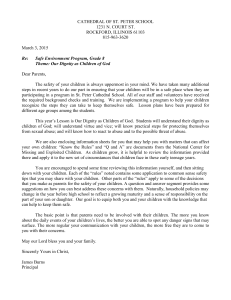
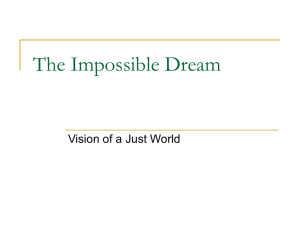
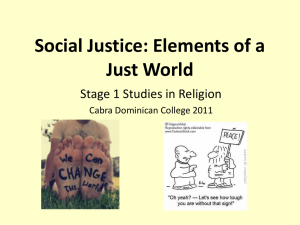

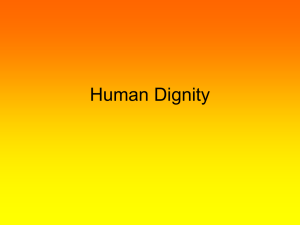
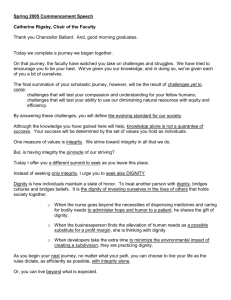

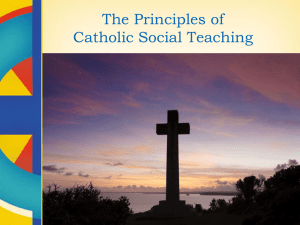
![4[1]._a_man_as_a_person](http://s2.studylib.net/store/data/005226893_1-b67b2be2c3623c1c44b6baa80b997c62-300x300.png)
